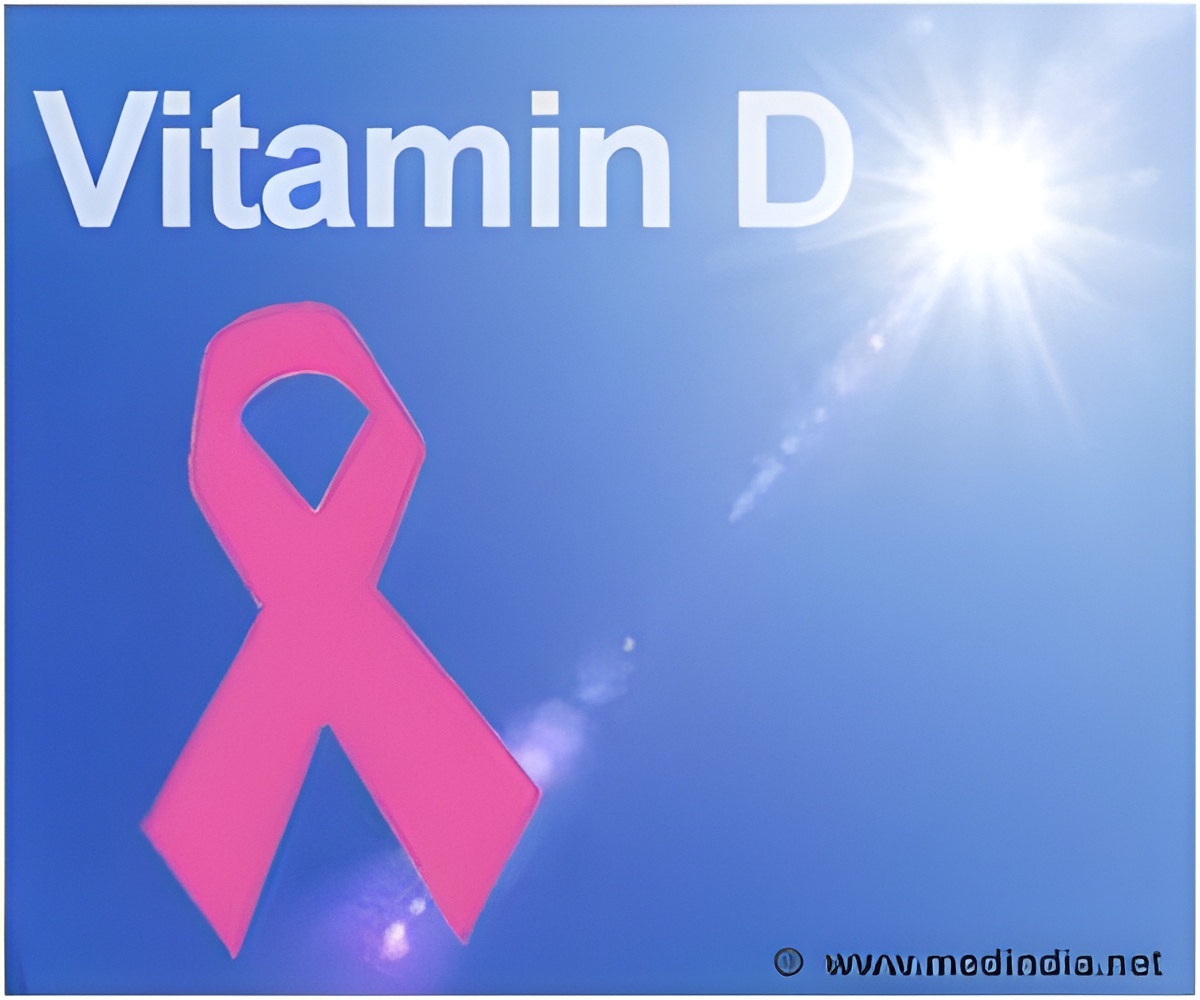The genetic variation in vitamin D pathway is related to the higher prevalence of estrogen-receptor (ER) negative breast cancer in American women of African ancestry, states study.

American women are expected to have more ER-negative breast cancer risk than European counterparts.. They are also likely to have reduced levels of circulating 25-hydroxyvitamin D. 25-hydroxyvitamin D is a major marker and a metabolite of vitamin D. It is concerned with ER-negative tumors in European women.
Yao et al believed that the racial differences in genetic variation in the pathway of vitamin D and 25-hydroxyvitamin D (25 OHD) might result in observed differences in the characteristics of tumor.
A case-control study was conducted and about 1,771 females were enrolled for the study.
The serum 25OHD levels were measured and tested; relation between variation and risk in three genes was studied: two for vitamin D metabolism (CYP24A1 and CYP27B1) and one for vitamin receptor.
In the study, 928 females had breast cancer. 547 women were African Americans and 381 were from European ancestry.
The study analysis revealed that 34.3% of African Americans had severe deficiency of vitamin D with low serum 25OHD levels of 10ng/mL while merely 5.9% of European women had severe vitamin D deficiency.
Reference:
Variants in the vitamin D pathway, serum levels of vitamin D, and estrogen receptor negative breast cancer among African-American women: a case-control study; Song Yao et al; Breast Cancer Research 2012
Source-Medindia














